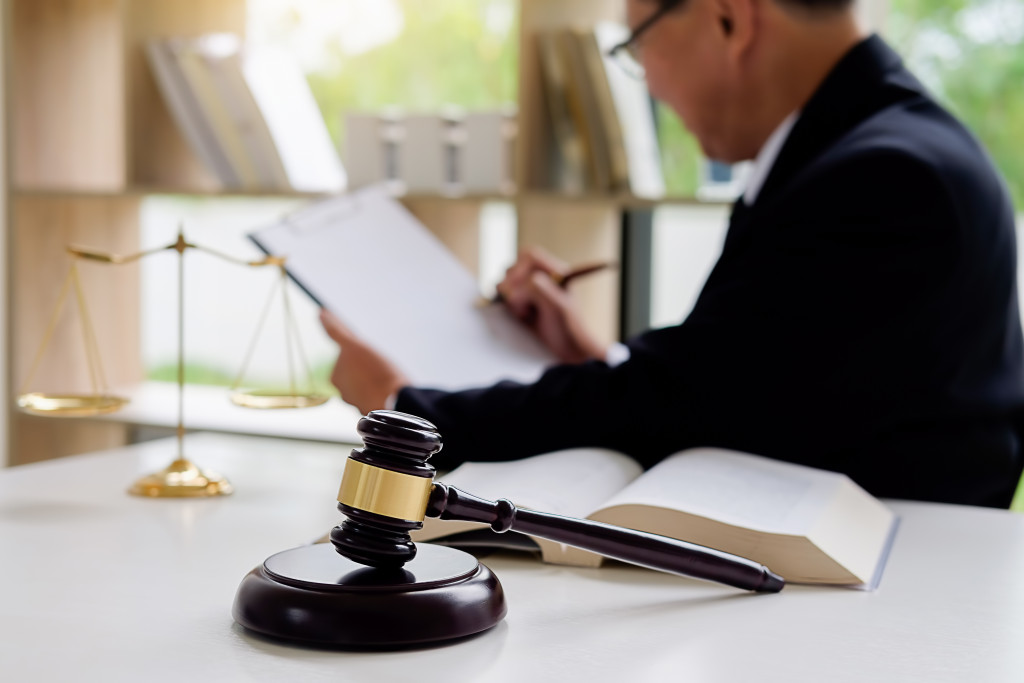- Estate litigation is a legal process resolving disputes over asset distribution and management after a person’s death.
- Common disputes include the validity of wills, family disagreements, issues over jointly held assets, executor selection, and taxes.
- Estate disputes can be emotionally and financially draining, leading to lengthy legal battles and strained relationships.
- Minimizing disputes involves proper planning with a lawyer, clear communication, choosing an objective executor, and regular updates to the estate plan.
- Transparency about finances and seeking professional help for tax liabilities can further help avoid family disagreements.
Dealing with the death of a loved one is never easy, but it can be even more difficult when you are left to deal with their estate. Estate disputes can quickly become lengthy legal battles, which can cause even more stress for those involved. Here’s a look into estate litigation, the most common estate disputes today, and how to avoid them. Understanding these potential issues lets you plan and ensure your loved ones are spared from unnecessary legal battles.
What is Estate Litigation?
Estate litigation is the legal process of resolving disputes about a person’s assets and properties after death. This can include challenges to the validity of a will, issues with the distribution of assets, and disagreements over the management or administration of an estate.
This type of litigation often involves family members, beneficiaries, creditors, and other interested parties with a stake in distributing the deceased’s assets. It is usually a complex and emotionally charged process that can take months or even years to resolve.
Common Estate Disputes
There are certain estate disputes more common than others. Here are some of the most common estate disputes today:
1. Disputes Over The Will

One of the most common estate disputes is over a loved one’s will. These disputes can arise when family members believe the will is invalid or that they were unfairly excluded from the will. This can lead to lengthy legal battles and strain family relationships. It can be emotionally taxing for many and financially problematic for most.
2. Family Disputes
Family disputes can also arise regarding an estate, especially when there is no clear designated beneficiary. For example, if a parent dies and has multiple children, disputes can arise over the distribution of assets.
3. Jointly Held Assets
Another common issue arises when an asset is jointly held by two people, such as a bank account. If one of the co-owners passes away, ownership of the asset will automatically go to the surviving owner, even if this was not the intent of the deceased.
4. Executors
An executor is responsible for administering an estate and distributing assets. If there is any disagreement among family members over who should be the executor, it can cause unnecessary stress and disputes.
5. Taxes
Finally, estate taxes can also cause disputes among family members. Family members may disagree over who should pay taxes if taxes are owed. This is another area where having a clear and detailed estate plan is essential. You should also consult a tax professional who can help you minimize tax liabilities and ensure that taxes are paid fairly and equitably.
How to Avoid Estate Disputes
While it is impossible to eliminate the risk of estate disputes, there are steps you can take to minimize the likelihood of them occurring. Here are five tips:
Plan With a Lawyer

You must plan with a lawyer today. An experienced estate lawyer can help you create a detailed and legally binding estate plan to minimize the risk of disputes. They can also advise you on any potential issues or concerns related to your situation.
Communicate with Your Family
Clear communication is key when it comes to avoiding estate disputes. Make sure your family members know your wishes, especially if there are any significant changes or updates to your estate plan. This can help prevent any surprises or misunderstandings down the line.
Choose an Objective Executor
When selecting an executor for your estate, choosing someone objective and capable of handling disputes fairly is important. Consider choosing a neutral third party, such as a trusted lawyer or financial advisor, as your executor.
Update Your Estate Plan Regularly
As your life circumstances change, updating your estate plan regularly is important. This can help ensure that your wishes are accurately reflected and minimize the risk of disputes based on outdated or unclear instructions.
Be Transparent About Your Finances
Being transparent about your finances with your loved ones can help avoid misunderstandings or suspicions about the distribution of assets after your death. This can also help prevent disputes arising over joint assets or taxes.
Estate litigation is a complex and emotionally charged process that can affect families. Understanding common disputes and taking proactive steps to avoid them can ensure that your loved ones are spared from unnecessary legal battles during a difficult time. Consult an experienced estate lawyer today to create a solid estate plan to help protect your wishes and minimize the risk of disputes. So, always be prepared and have a clear plan for your loved ones’ sake.

